The eerie reality of Irish shelters where women who became pregnant out of wedlock were hidden: Sheila's story
Categories: Children | Europe | History | Society
By Pictolic https://pictolic.com/article/the-eerie-reality-of-irish-shelters-where-women-who-became-pregnant-out-of-wedlock-were-hidden-sheilas-story.htmlClutching a small bag of things in her hand, Sheila O'Brien (Sheila O'bryne) said goodbye to her parents, took a deep breath and knocked on the door of St. Patrick's Orphanage. It was 1976, and the unfortunate pregnant woman was one of thousands of girls who were sent to Irish mother and child homes to hide their "sin" from society. In a Dublin shelter, a frightened 19-year-old Sheila had to work all day. In addition, the nuns beat her and even tried to drown her in the bathroom. And once a girl was raped by a priest.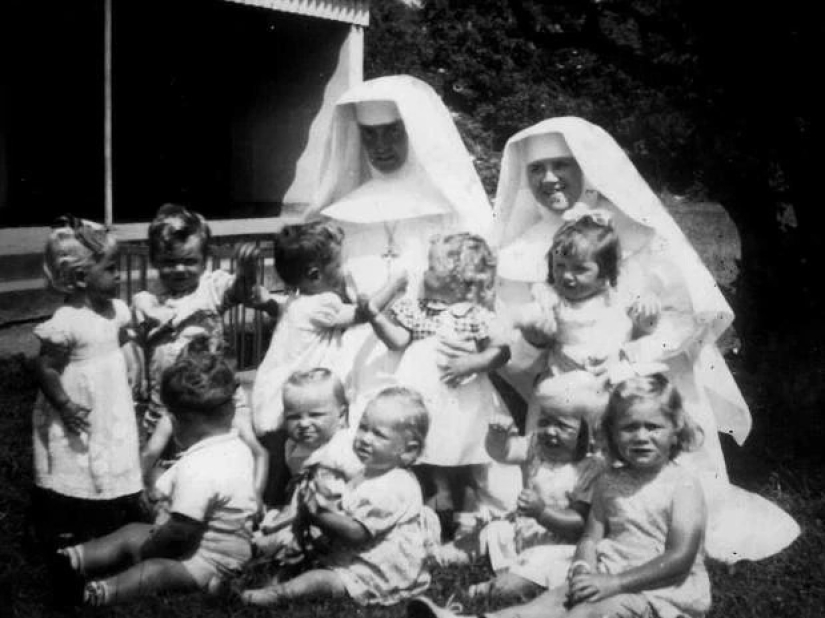 When Sheila had a baby boy, she was not even allowed to look at him and was forced to give him up for adoption when the baby was six weeks old. The young mother's heart was broken. She could not share her grief with anyone, because pregnancy out of wedlock was considered unacceptable at that time. The girl disgraced the family and had to pay for it.
When Sheila had a baby boy, she was not even allowed to look at him and was forced to give him up for adoption when the baby was six weeks old. The young mother's heart was broken. She could not share her grief with anyone, because pregnancy out of wedlock was considered unacceptable at that time. The girl disgraced the family and had to pay for it.
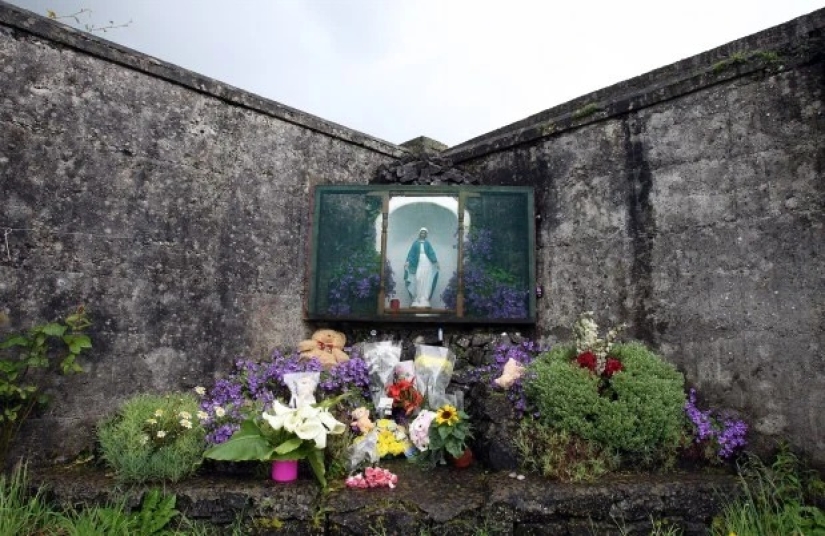 In 2017, the real scale of the terrible violence in such shelters surfaced. Then in the Irish Tuam, a mass grave of infants was discovered near the Bon Secour House of mercy. It is believed that about 800 babies died here alone.
In 2017, the real scale of the terrible violence in such shelters surfaced. Then in the Irish Tuam, a mass grave of infants was discovered near the Bon Secour House of mercy. It is believed that about 800 babies died here alone.
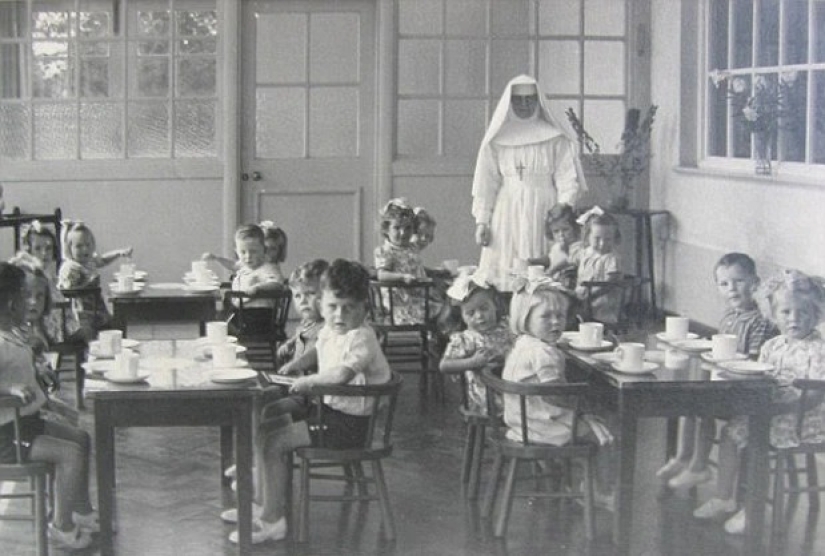 Between 1904 and 1996, 35,000 unmarried mothers were in Catholic shelters. During this time, about 6,000 babies died there. Many more children were sold to American families using illegal adoption deals, after which fake death certificates were issued in institutions. The Commission for the Investigation of cases in the homes of mothers and children was formed in 2015 to provide a report on the nightmare that was happening in the monastery walls. Nevertheless, the victims who were in 18 shelters, both mothers and children born there, claim that the Commission did not listen to them.
Between 1904 and 1996, 35,000 unmarried mothers were in Catholic shelters. During this time, about 6,000 babies died there. Many more children were sold to American families using illegal adoption deals, after which fake death certificates were issued in institutions. The Commission for the Investigation of cases in the homes of mothers and children was formed in 2015 to provide a report on the nightmare that was happening in the monastery walls. Nevertheless, the victims who were in 18 shelters, both mothers and children born there, claim that the Commission did not listen to them.
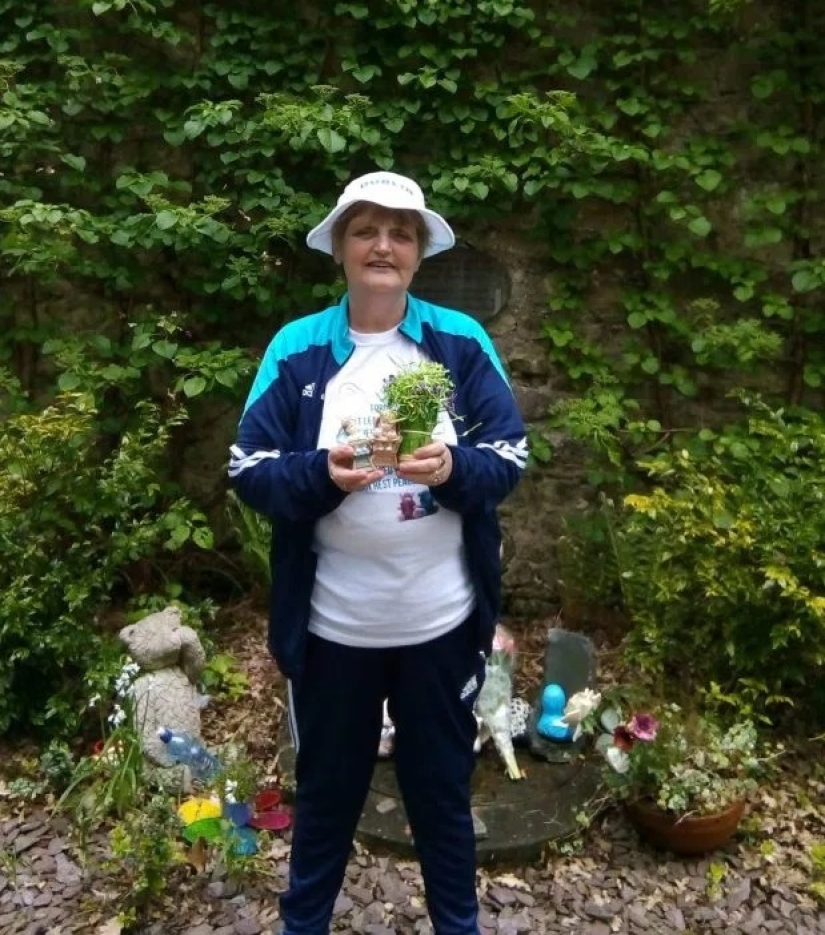 Sheila grew up in a conservative family in Dublin. She accidentally got pregnant by a guy she met at a dance. The enraged father forced her to drag furniture down and up the stairs until the girl felt really bad and ran away to a friend. After that, he sent his daughter to a family where unmarried pregnant women were accepted for a fee.
Sheila grew up in a conservative family in Dublin. She accidentally got pregnant by a guy she met at a dance. The enraged father forced her to drag furniture down and up the stairs until the girl felt really bad and ran away to a friend. After that, he sent his daughter to a family where unmarried pregnant women were accepted for a fee.
 Then Sheila was transferred to St. Patrick's Catholic Orphanage, where such mothers were hidden from society until childbirth.
Then Sheila was transferred to St. Patrick's Catholic Orphanage, where such mothers were hidden from society until childbirth.
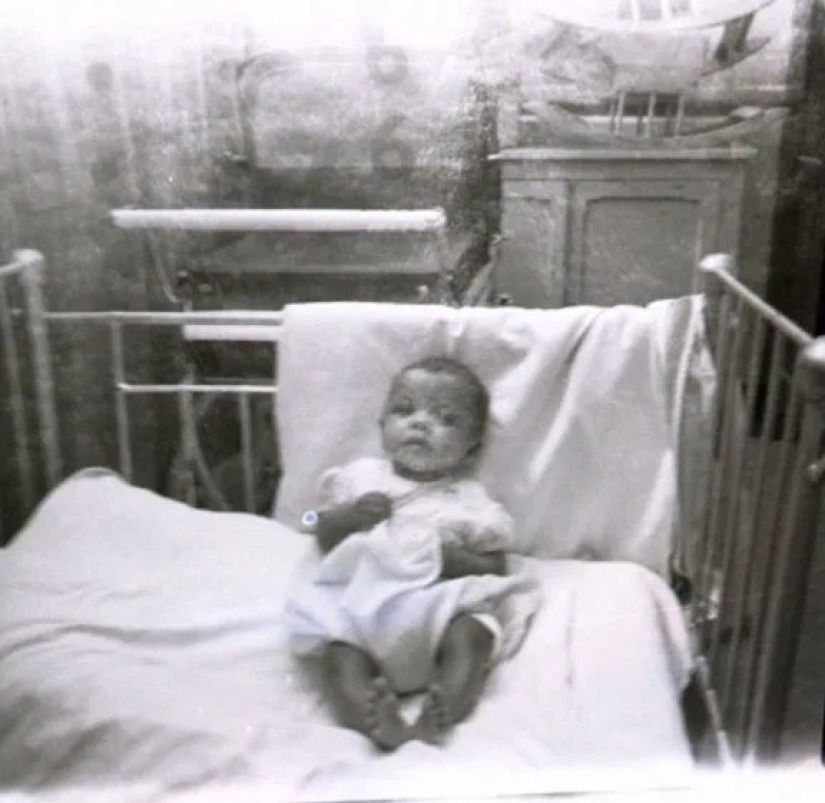 It is estimated that about 3,000 children died at St. Patrick's Orphanage from 1904 to 1985 as a result of vaccine trials, mistreatment and malnutrition. Most of the babies are buried in a common grave at Glasnevin Cemetery, which is called the Place of Angels. The remains of several hundred babies were donated to Trinity College for medical research. Expectant mothers worked from 7.00 to 21.30.
It is estimated that about 3,000 children died at St. Patrick's Orphanage from 1904 to 1985 as a result of vaccine trials, mistreatment and malnutrition. Most of the babies are buried in a common grave at Glasnevin Cemetery, which is called the Place of Angels. The remains of several hundred babies were donated to Trinity College for medical research. Expectant mothers worked from 7.00 to 21.30.
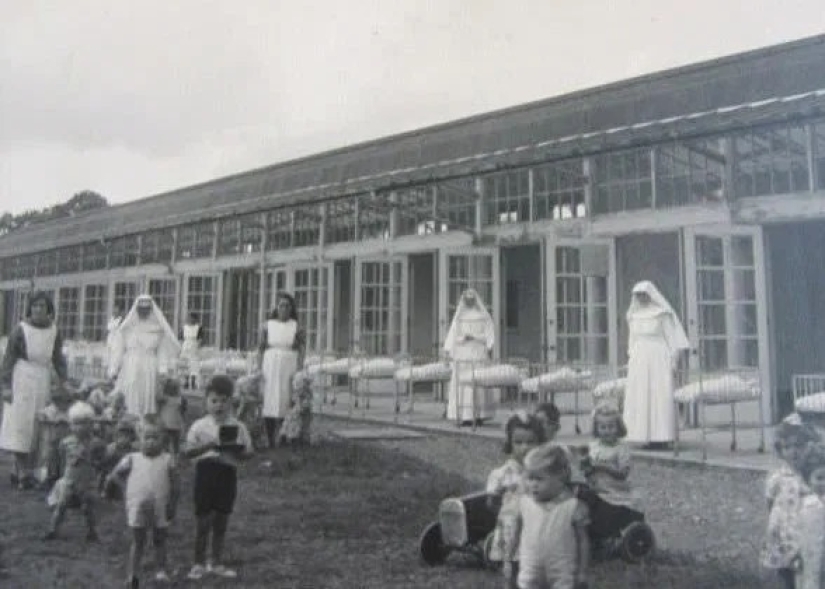 Since Sheila was expecting a half-breed baby, she was isolated from the others. Despite the fact that the girl caught shingles, she was still forced to work. The orphanage was run by nuns, but at the same time the institution was under the supervision of a laywoman, who was called a "matron." This lady often personally punished women by beating them for the slightest offenses.
Since Sheila was expecting a half-breed baby, she was isolated from the others. Despite the fact that the girl caught shingles, she was still forced to work. The orphanage was run by nuns, but at the same time the institution was under the supervision of a laywoman, who was called a "matron." This lady often personally punished women by beating them for the slightest offenses.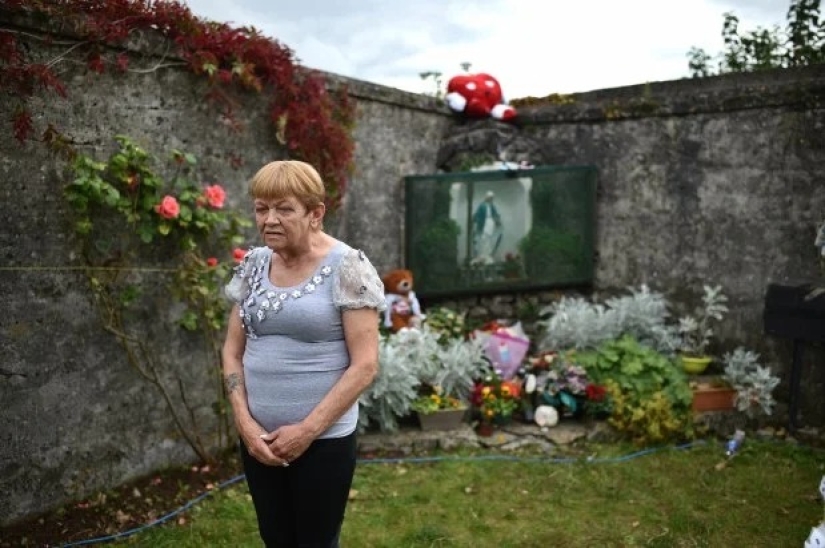 One day one of the nuns tried to drown Sheila in the bathtub. The girl managed to get out by pushing the offender into the water. When it was time to give birth, the woman was forced to walk around the garden for 39 hours. Childbirth was very difficult, and the nuns mockingly condemned that this was how she received punishment for her sin. Despite all the horrors, Sheila had a healthy baby boy, who was immediately taken away without even letting her mother touch him. After that, the woman continued to work in the children's rooms, but she was not allowed to take care of her own son. The unfortunate woman was given to hold the baby only during the baptism, leaving her alone with the priest, who, as she claims, raped her after the ceremony.
One day one of the nuns tried to drown Sheila in the bathtub. The girl managed to get out by pushing the offender into the water. When it was time to give birth, the woman was forced to walk around the garden for 39 hours. Childbirth was very difficult, and the nuns mockingly condemned that this was how she received punishment for her sin. Despite all the horrors, Sheila had a healthy baby boy, who was immediately taken away without even letting her mother touch him. After that, the woman continued to work in the children's rooms, but she was not allowed to take care of her own son. The unfortunate woman was given to hold the baby only during the baptism, leaving her alone with the priest, who, as she claims, raped her after the ceremony.
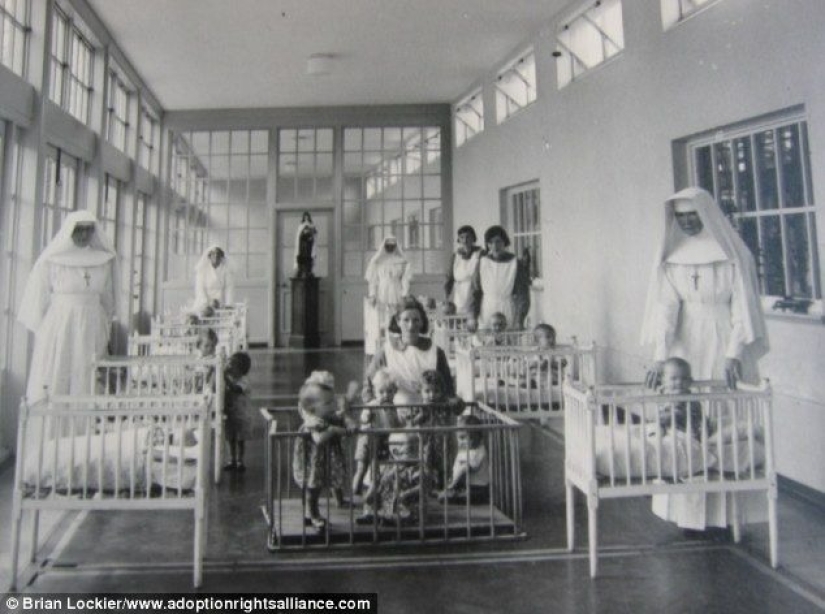 Sheila was silent about what happened because she was afraid to stay in the shelter forever. A month and a half after the birth of the child, she was forced to sign documents for adoption consent. A woman could not go home with a half-breed baby, because she would disgrace the family. She would be treated like a leper. Her father took Sheila away three months later, and the story was never mentioned in the house.
Sheila was silent about what happened because she was afraid to stay in the shelter forever. A month and a half after the birth of the child, she was forced to sign documents for adoption consent. A woman could not go home with a half-breed baby, because she would disgrace the family. She would be treated like a leper. Her father took Sheila away three months later, and the story was never mentioned in the house.
 Unfortunately, the woman had no more children - due to internal injuries that happened in the shelter. She eventually moved to Cork, where she wandered the streets for three years. For 20 years, Sheila has been trying to find her son. She managed to do it thanks to the help of a social worker. She saw the boy and his foster parents. The meeting was very warm, and they continue to keep in touch.Now Sheila devotes a lot of time to fighting for the rights of mothers and children who have passed through shelters. The truth must prevail, no matter how terrible it may be.
Unfortunately, the woman had no more children - due to internal injuries that happened in the shelter. She eventually moved to Cork, where she wandered the streets for three years. For 20 years, Sheila has been trying to find her son. She managed to do it thanks to the help of a social worker. She saw the boy and his foster parents. The meeting was very warm, and they continue to keep in touch.Now Sheila devotes a lot of time to fighting for the rights of mothers and children who have passed through shelters. The truth must prevail, no matter how terrible it may be.
Tens of thousands of children have suffered in religious shelters around the world. Stephen Smith has survived 17 years of bullying, imprisonment and violence at the hands of parents and priests.
Keywords: Pregnancy | Victims | Bullying | Ireland | Mothers | Babies | Nuns | Violence | Shame | Shelter | Investigation | Family | Death | Secrets | Horror
Post News ArticleRecent articles

It's high time to admit that this whole hipster idea has gone too far. The concept has become so popular that even restaurants have ...

There is a perception that people only use 10% of their brain potential. But the heroes of our review, apparently, found a way to ...
Related articles

Explosions of smartphone batteries and short circuits in sockets no longer become a sensation, but few people know that the danger ...

Serial killer David Berkowitz (David Berkowitz) for a year terrorized the people of New York. He shot six people to death and ...

You would think that in today's world there is no place to wild customs? Sorry, you're wrong: the life of the pygmies of the Congo ...

New Year's is a time to surprise and delight loved ones not only with gifts but also with a unique presentation of the holiday ...